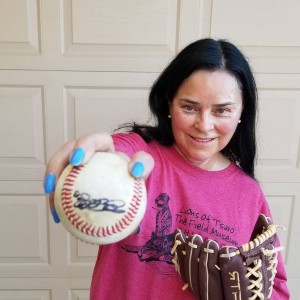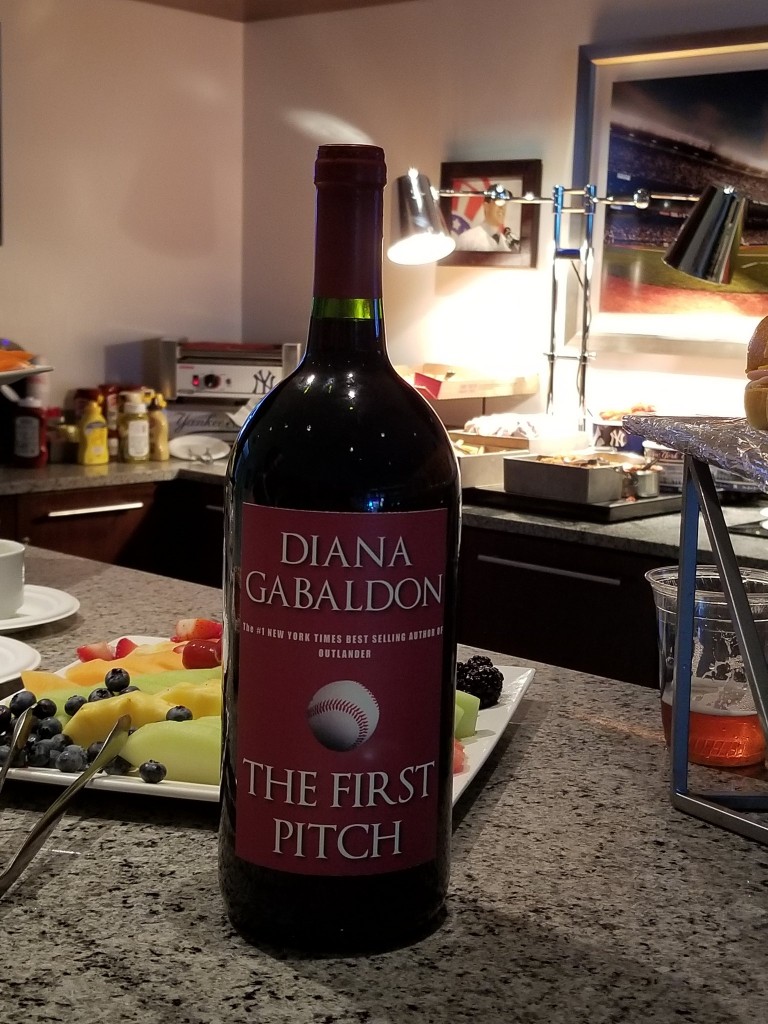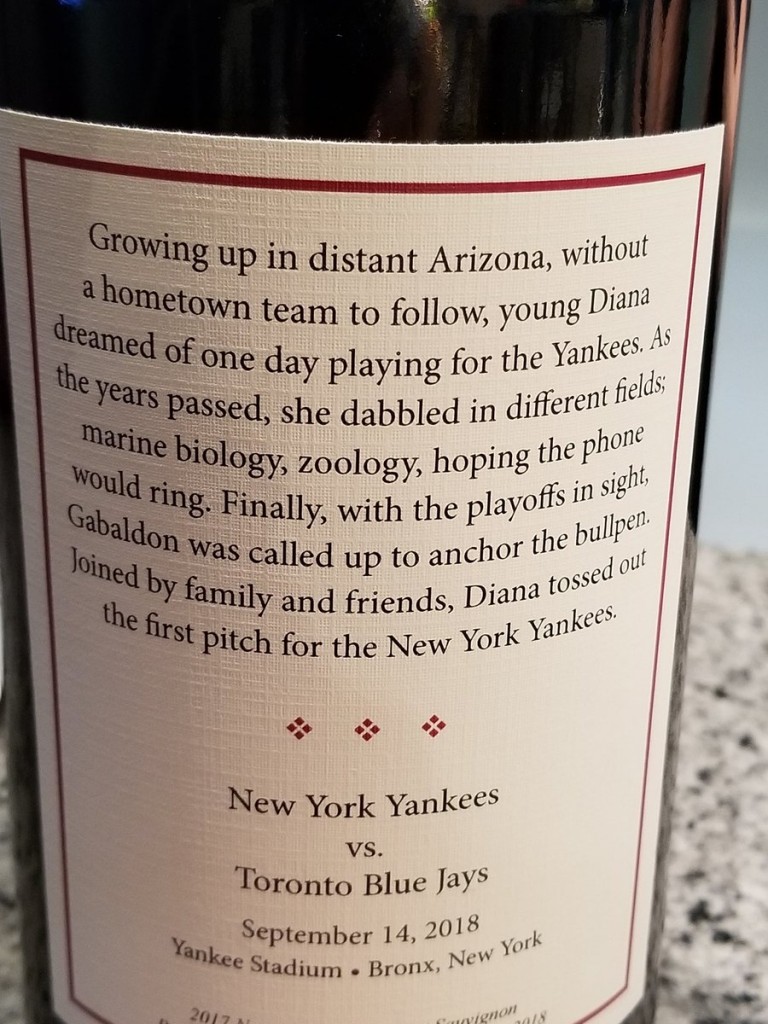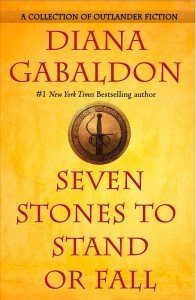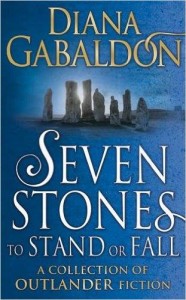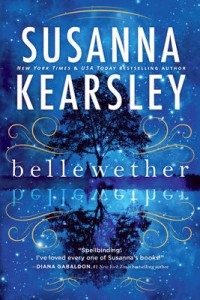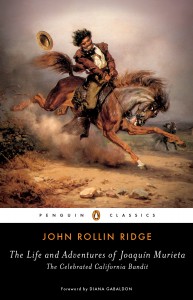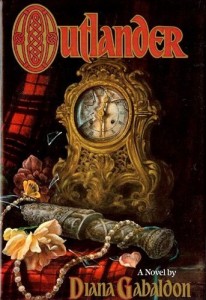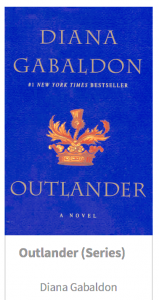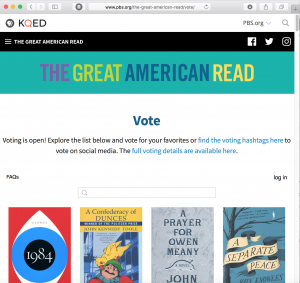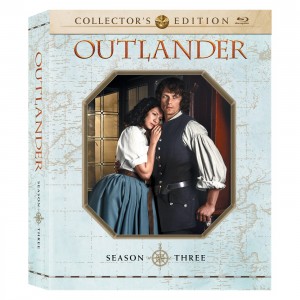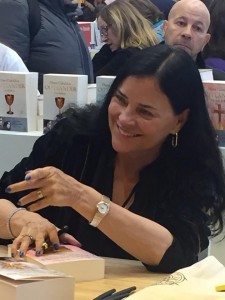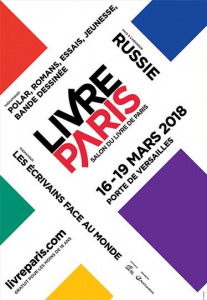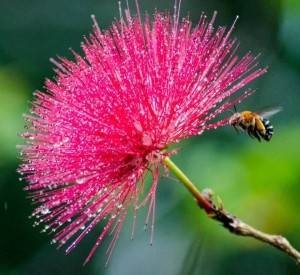Social Media Hashtags: #DailyLInes, #HappyVernalEquinox, #HalandMinnie, #AndMrBloomer, #inthePrinceofWalessgreenhouse, #springhassprung!, #AFugitiveGreen
[Excerpt from “A Fugitive Green” — in SEVEN STONES TO STAND OR FALL, Copyright © 2017 by Diana Gabaldon. And many thanks to Louise Hudson for the Scottish bees on thistle!]
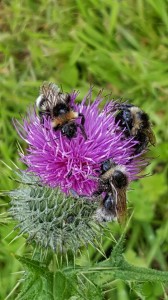 A flash of red caught her eye through the trees, and for an instant, she thought he was an exotic bird, lured by the astonishing abundance of peculiar fruits. Then she heard voices, though, and a moment later he stepped out into the wide graveled patch where the pathways intersected. A soldier, in what must be full-dress uniform—a blaze of scarlet and gold, with shining black boots to the knee and a sword at his belt.
A flash of red caught her eye through the trees, and for an instant, she thought he was an exotic bird, lured by the astonishing abundance of peculiar fruits. Then she heard voices, though, and a moment later he stepped out into the wide graveled patch where the pathways intersected. A soldier, in what must be full-dress uniform—a blaze of scarlet and gold, with shining black boots to the knee and a sword at his belt.
He wasn’t tall; in fact, he was rather slight, with a fine-boned face seen in profile as he turned to say something to his companion. He stood very straight, though, shoulders square and head up, and there was something about him that reminded her of a bantam cock—something deeply fierce, innately proud, and completely unaware of its relative size; quite ready to take on all comers, spurs first.
The thought entertained her so much that it was a moment before she noticed his interlocutor. The companion wasn’t dressed as a soldier, but was certainly very fine, too, in gold velvet, with a blue satin sash and some large medallion pinned to his chest—the Order of something-or-other, she supposed. He did, however, strongly resemble a frog, wide-lipped and pale, with rather big, staring eyes.
The sight of the two of them, rooster and frog, engaged in convivial conversation, made her smile behind her fan, and she didn’t notice the gentleman who had come up behind her until he spoke.
“Are you fond of opuntiod cacti… madame?”
“I might be, if I knew what they were,” she replied, swinging round to see a youngish gentleman in a plum-colored suit gazing at her intently.
“Um… Actually, I prefer succulents,” she said, giving the agreed-upon countersign. She cleared her throat, hoping she remembered the word. “Particularly the, um, Euphorbias.”
The question in his eyes vanished, replaced by amusement. He looked her up and down in a manner that might in other circumstances have been insulting. She flushed, but held his gaze and raised her brows.
“Mr. Bloomer, I presume?”
“If you like,” he said, smiling, and offered her his arm. “Do let me show you the Euphorbias, Miss…. ?”
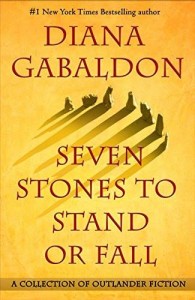 A moment of panic; who should she be, or admit to being?
A moment of panic; who should she be, or admit to being?
“Houghton,” she said. “Lady Bedelia Houghton.”
“Of course you are,” he said, straight-faced. “Charmed to make your acquaintance, Lady Bedelia.”
He bowed slightly, she took his arm, and together they walked slowly into the wilderness.
There were several glasshouses, linked together, and they passed through minor jungles of philodendrons—but philodendrons that had never graced anything so plebeian as a morning room, with ragged leaves each half as large as Minnie herself, a thing with great veined leaves the color of green ink and the look of watered silk—
“They’re rather poisonous, philodendrons,” Mr. Bloomer said, with a casual nod. “All of them. Did you know?”
“I shall make a note of it.”
And then trees—ficus, Mr. Bloomer informed her (perhaps he hadn’t chosen his alias at random, after all)—with twisted stems and thick leaves and a sweet, musty smell, some of them with vines that climbed the ficus’s trunk with convulsive force, sturdy rootlike hairs clinging to the thin bark. And then, sure enough; the bloody Euphorbias, in person.
She hadn’t known things like that existed. Many of them didn’t even look like proper plants—and some that did were strange perversions of the plant kingdom, with thick bare stems studded with cruel thorns, things that resembled lettuce—but a ruffled white lettuce with dark red edgings that made it look as though someone had used it to mop up blood—
“They’re rather poisonous, too, the Euphorbias, but it’s more the sap. Won’t kill you, but you don’t want to get it in your eyes.”
“I’m sure I don’t.” Minnie took a better grip on her parasol, ready to unfurl it in case any of the plants should take it into mind to spit at her; several of them looked as though they’d like nothing better.
“They call that one ‘Crown of Thorns,’” Mr. Bloomer said, nodding at one particularly horrid thing with long black spikes sticking out in all directions. “Apt.” He noticed her expression at this point, and smiled, tilting his head toward the next house. “Come along; you’ll like the next collection better.”
“Oh,” she said, in a small voice. Then, “OH!” much louder. The new glasshouse was much bigger than the others, with a high, vaulted roof that filled the air with sun and lit the thousand—at least!—orchids that sprang from tables and spilled from trees in cascades of white and gold and purple and red, and…
“Oh, my.” She sighed in bliss, and Mr. Bloomer laughed.
They weren’t alone in their appreciation. All of the glasshouses were popular; there had been a fair number of people exclaiming at the spiny, the grotesque, and the poisonous—but the orchid house was packed with guests and the air was filled with a hum of amazement and delight.
Minnie inhaled as much as she could, sniffing. The air was scented, with a variety of fragrances, enough to make her head swim.
“You don’t want to smell that one.” Mr. Bloomer, guiding her from one delight to the next, put out a shielding hand toward a large pot of rather dull green orchids with thick petals. “Rotting meat.”
She took a cautious sniff and recoiled.
“And why on earth would an orchid want to smell like rotting meat?” she demanded.
He gave her a slightly queer look, but smiled.
“Flowers put on the color and scent they require to attract the insects who pollinate them. Our friend the Bulbophyllum there—” he nodded at the green things, “—depends upon the services of carrion flies. Come, this one smells of coconut—have you ever smelt a coconut?”
This excerpt was also posted on my official Facebook page on Wednesday, March 21, 2018.
Posted on March 22, 2018 2:27 PM
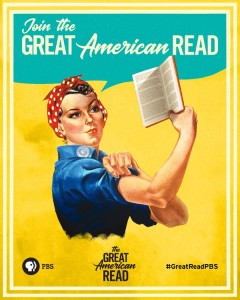 Well, alrighty, then… So, the voting for your favorite book(s) in the PBS “Great American Read” series goes on until October 19th! That’s a whole lot of voting, and I hesitate to urge anybody to DO it every day…. but I feel that I should tell you that you can if you want to. <g>
Well, alrighty, then… So, the voting for your favorite book(s) in the PBS “Great American Read” series goes on until October 19th! That’s a whole lot of voting, and I hesitate to urge anybody to DO it every day…. but I feel that I should tell you that you can if you want to. <g> Send a Text Message (SMS) to 97979 with a unique hashtag for your favorite book in the message. For OUTLANDER, it is:
Send a Text Message (SMS) to 97979 with a unique hashtag for your favorite book in the message. For OUTLANDER, it is: